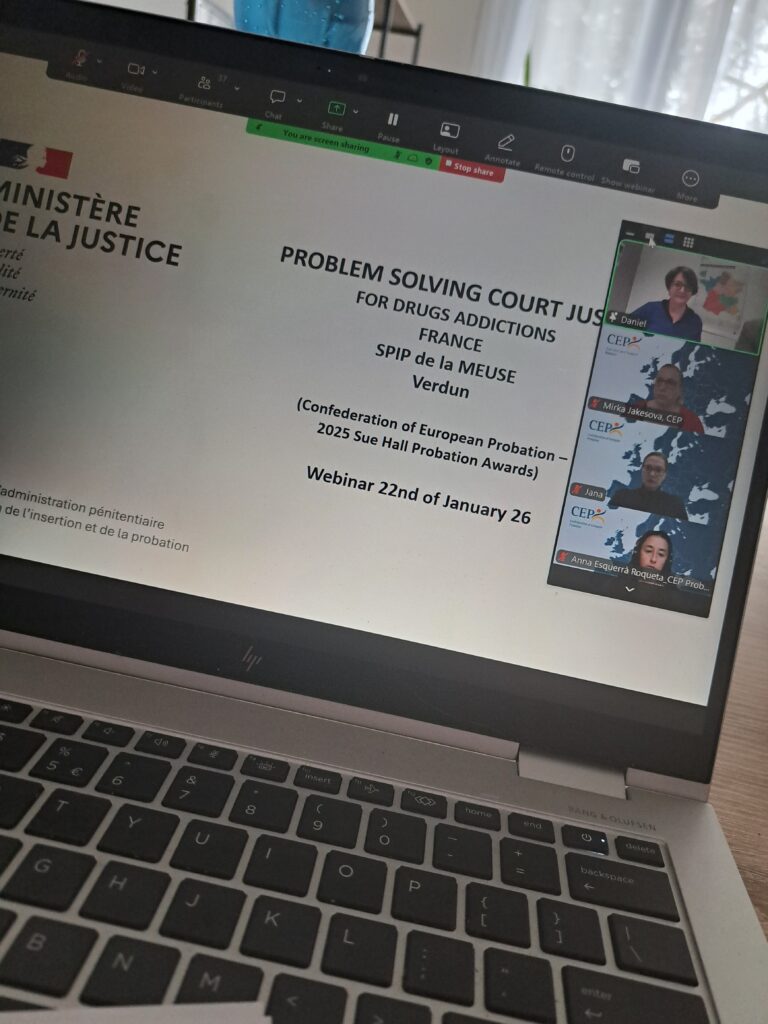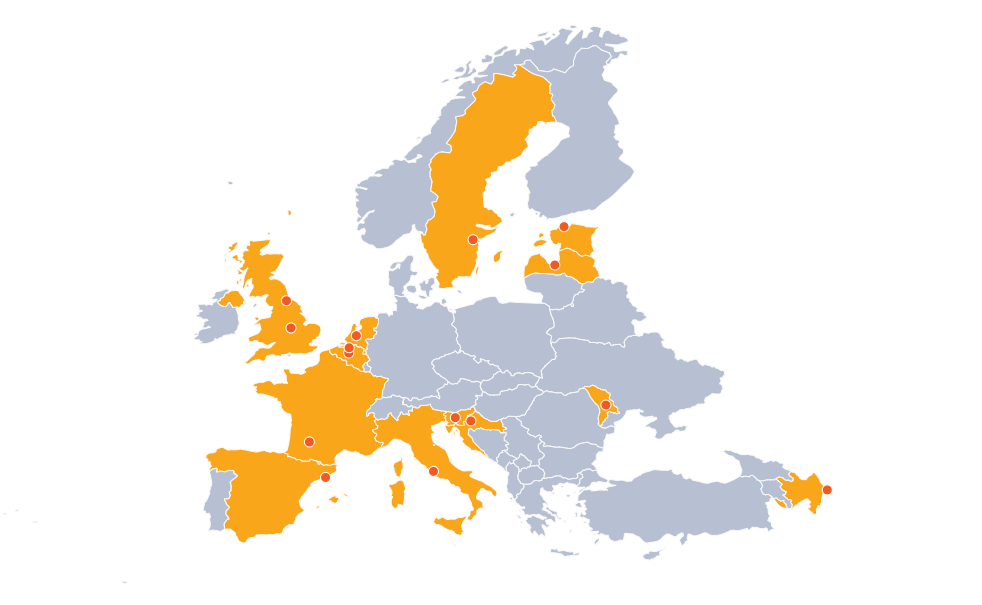Previous Article
News
Responses to European survey on mental health in probation
In August 2012 a brief electronic survey was sent out to CEP members on behalf of Professor Charlie Brooker. This deliberately brief and broad survey aimed to give some insight into the extent to which mental health in probation is acknowledged in both policy and practical terms across different European countries.
 More specifically, representatives from each country were asked to provide information on:
More specifically, representatives from each country were asked to provide information on:
- the policy background for mental illness and probation
- what is known about the prevalence of current mental illness amongst offenders on probation
- the extent and nature of mental health awareness training
- processes for identifying mental illness amongst offenders on probation and referring them into appropriate services (including how mental health service provision for offenders is financed)
- the role of probation in the provision of mental health care to offenders
Please download a more elaborate overview of the survey’s findings in a summary written by Professor Brooker. The findings may ultimately be used to inform a bid for research funding on this topic. If you have an interest in this topic Professor Brooker can be contacted on cbrooker@lincoln.ac.uk.
Overview of responses
Representatives from a total of eight countries (Slovakia, Northern Ireland, the Netherlands, Denmark, Lithuania, Austria, Jersey and Romania) responded to the survey. The overall response rate was low at 22% (8/36). Responses showed that the total number of people being supervised by the probation services in these countries at any one time ranged from 72 in Slovakia to 14,889 in Romania. When asked to describe the main aims of the probation service in their country, seven of the eight respondents mentioned reducing re-offending and six mentioned the rehabilitation of offenders.
Conclusion to survey’s findings
It is hard to generalise about the care and treatment of people with mental health disorders in probation services across Europe as the response rate to the survey was low. It is interesting that that half the responses that were obtained came from smaller countries such as Jersey and Northern Ireland. The prevalence of mental health disorders in the responding countries varied on how disorders were defined but two of the estimates, 60% (N Ireland) and 50% (Netherlands) corresponded with the small amount of international research on this topic (Lurigio et al, 2003; Brooker et al, 2012). Government policy on the care of mental health disorders in probation services was under-developed and few examples were cited. In all responding countries, mental health awareness training was a feature of probation services, but this rarely lasted more than two days and was ‘introductory’. A variety of routes were described whereby a probationer with a mental health disorder might be referred to a mental health specialist. However, it was acknowledged that for a probationer to be referred at all a mental health problem had to be detected in the first place. In three of the eight countries, mental health treatment under a court order, was a condition of probation supervision. Again, the disorder had to be recognised either at arrest or on remand for any such order to be mandated.
There is a high proportion of those suffering mental health disorders in probation services approximately half of all probationers. Many probationers suffer from a mental health problem that is not detected nor treated appropriately. Untreated mental health disorders contribute to re-offending and systems should operate whereby mental health disorders are recognised and then treated effectively. Those that responded to the survey have helpfully illuminated the situation in their respective countries. To obtain a fuller response to a survey of this kind in the future would require face-to-face interviews in order to obtain a fuller picture.

Related News
Keep up to date with the latest developments, stories, and updates on probation from across Europe and beyond. Find relevant news and insights shaping the field today.
New

Alternatives to pre-trial detention, Community Sanctions and Measures, Framework Decisions, Technology
Future of Criminal Justice: CEP’s Contribution to Key 2025 Dialogues
27/01/2026
Throughout 2025, CEP and its representatives actively participated in the online Technical meetings ahead of the HLF as well as the High Level Forum on Future of Criminal Justice taking place on 4-5 March 2025, 20-21 May 2025 and 1-2 October 2025 in Brussels, Belgium.
Recap

Alternatives to pre-trial detention
Recap: Webinar on Alternatives to Detention 2026
26/01/2026
On Thursday 22 January, CEP hosted the first webinar of 2025 on the topic of Alternatives to Detention. The session led by Ms. Marina Pajoni from the French Prison and Probation Service titled „Problem Solving Justice in Pracitce: The Meuse Probation Service´s Approach to Drug Addiction“ introduced an innovative programme developed by the Meuse Probation Service in close cooperation with the French Ministry of Justice.
New

Education and Training
CEP launches an interactive European map of probation education and training institution contacts
22/01/2026
The CEP is pleased to inform its members that a new dedicated section has been developed on the CEP website featuring an interactive map of Europe.
New

CEP Events
CEP activity calendar 2026
20/01/2026
As we begin the new year, we would like to thank all CEP members, partners, and participants for your continued engagement and valuable contributions. Your involvement plays an essential role in shaping CEP’s work and activities.
We are pleased to share the CEP calendar for 2026, which provides an overview of the events planned for the year ahead. We look forward to continuing our collaboration and welcoming you to upcoming CEP activities throughout the year.
Thank you for being part of the CEP community.
New

CEP members, Gender-based violence
Interventions Alliance’s Eden House Recognized as Outstanding
15/01/2026
CEP is delighted to share that Eden House, an Interventions Alliance residential service for women with high-risk or complex needs on probation, has been rated “Outstanding” overall by HM Inspectorate of Probation. In 2022, Eden House was honored with the CEP Public Protection Award. Our sincere congratulations to the team for this remarkable achievement.
New

Education and Training
The Judicial Training Dashboard
14/01/2026
The European Training Platform (ETP) is a search tool for justice professionals. You can find self-learning materials on a great variety of EU law practice areas and related topics, as well as links to training providers’ homepages and course catalogues.
Subscribe to our bi-monthly email newsletter!
"*" indicates required fields
- Keep up to date with important probation developments and insights.

